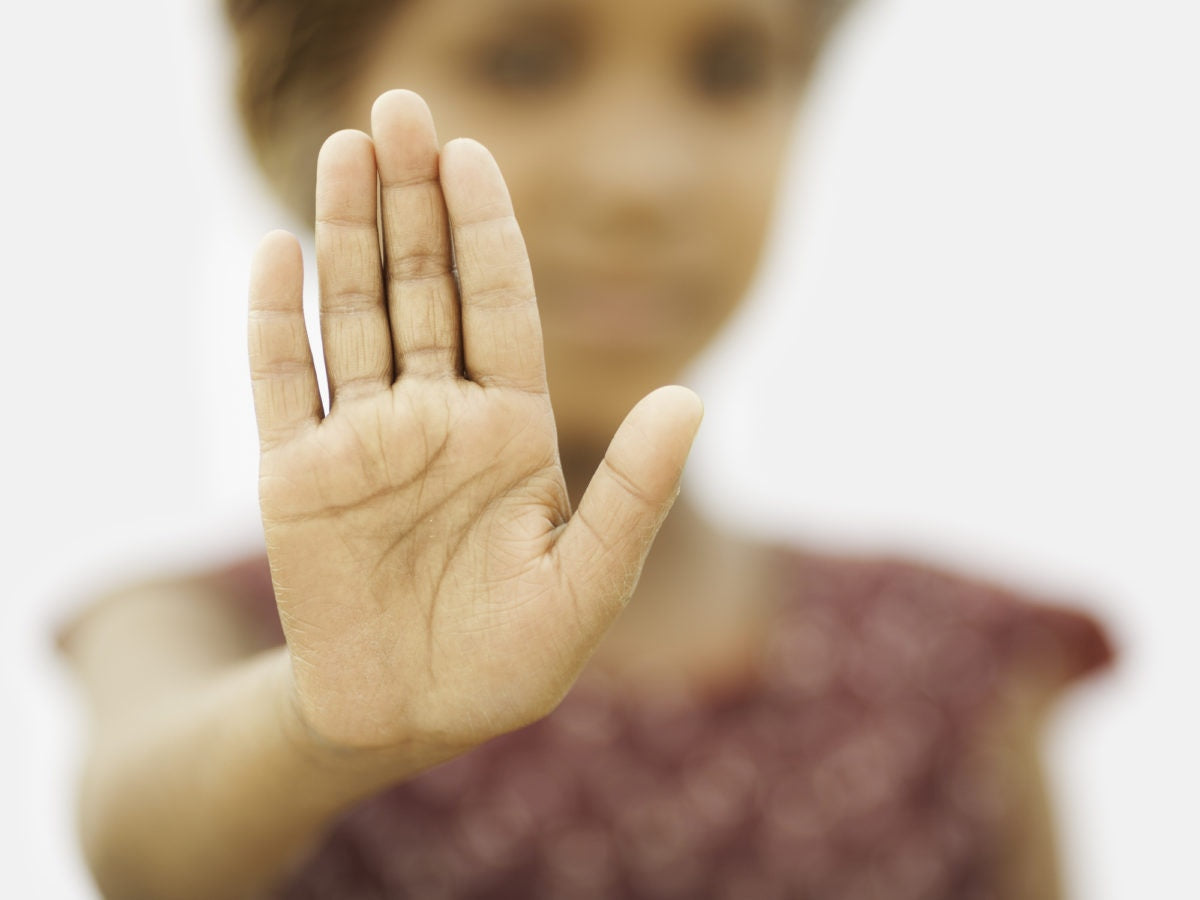How to say "no" and mean it is a skill every kid needs to have. Teaching kids to be assertive means teaching them to recognize and stand up for their rights and also for others’ rights.
When we teach our kids to be assertive, we give them skills they can use in almost every situation. They are better able to express their needs, it’s easier for them to make friends, and they are less likely to fall victim to bullying and victimization. Research suggests that assertive training may help lower kids’ level of anxiety, stress, and depression.
Being assertive means giving your opinion honestly and with respect. It doesn’t mean being aggressive. Our kids might get their way when they react aggressively to others, but they might find it hard to make and keep friends.
The good thing about assertiveness is that it’s not necessarily an innate characteristic. In other words, all kids can be taught to be more assertive. Teaching kids to be assertive also means teaching them to respect others’ decisions. It means teaching them to talk, but also to listen. It means teaching them that they will not always get their way.
5 tips to raise assertive kids
1 | Treat kids with respect
Children raised in authoritative families where parents are firm but receptive are more likely to display assertive behavior. When we set clear limits and communicate our expectations clearly, we set an example for kids to follow.
Research has found that fostering strong parent-child relationships helps kids be more assertive. Kids raised in loving and respectful environments are less likely to accept bullying and victimization and are also less likely to become bullies themselves.
2 | “No” is not necessarily misbehavior
All parents are aware of the endless no phase, but beyond this toddler phase, teaching our kids when and how to say "no" can make it easier for them to express their opinions. It can also make it more likely for their opinions to be respected.
When we immediately cease what we’re doing (tickling, rough play, etc.) when our kid says “no,” or stop trying to convince them that they “actually meant to say yes,” we teach them that “no means no” and that saying “no” or “stop” is enough.
We also teach them about respecting others when we reinforce others’ “nos.” When a sibling or a friend says "no" but our kid continues, teaching her that “no means no” helps her learn about respecting others’ choices.
3 | Teaching kids the power of “no” empowers them.
Let kids know that their opinion counts.
Teachings kids that their ideas matter shows them that it's their right to express themselves and to be listened to. When we involve kids in the decision-making process, we teach them that their opinions count. There is evidence that democratic parenting styles where kids have a voice lead to better social, academic, and psychological outcomes.
There are countless everyday opportunities to teach kids that their opinion counts. When we give our kids options (“Would you like the green one or the yellow one?”) we teach them to express themselves. When we ask them to help us come up with a solution, we teach them that their ideas matter. When we make it a habit to ask them what they think, they get into the habit of expressing themselves. Practicing family negotiation can also help kids learn about expressing their opinions and listening to the opinions of others to come up with a fair solution.
4 | Practice makes perfect
As with all things, practicing assertive behavior on a regular basis can lead to assertiveness.
Being aware of how your kid communicates can help you work on specific issues. For example, if your son always responds with “I don’t know” when asked to make a decision, you can come up with a system to make him more aware of how many times he responds using these words and to help him express his choices or opinions.
You can also help your kid practice by asking open-ended questions: “What did you think of the…?”
Everyday experiences also provide opportunities to practice. If your daughter comes home and says that another kid took the ball from her while she was still playing, help her come up with an assertive response for the next time the same thing happens: “I’ll give it to you as soon as I’m done” or “I’m still playing with it but you can play with me if you like.”
Kids don’t always know the words to use to express themselves so it’s important to give them scripts they can use. Remember that noticing and rewarding assertive behavior makes it more likely for that behavior to be reproduced. When you tell your kid “I like the way you…” or “that was brave when you...” you're reinforcing her assertiveness.
5 | Model assertiveness
We now know that whether we like it not, we act as models for our kids. Our kids watch our behavior to learn about how they should interact with others. When we model assertive behavior and respect their decisions, we teach them about being assertive.
Parents, however, are not the only role models. Kids can also learn about being assertive from books, movies or TV programs that focus on assertiveness.
6 | Fake it until you make it
It can be difficult to be assertive, even when we’re grown-ups. Tricks such as teaching kids to keep their heads up when talking to others makes it easier for them to come off as confident and assertive.
We can also help our kids pretend that they are assertive. Role-playing exercises can help kids practice what they’ll say next time, how they’ll say it (confident voice), or where they’ll look (look up, eye contact, etc).
What are your tips for raising assertive kids? Let us know in the comments section.



